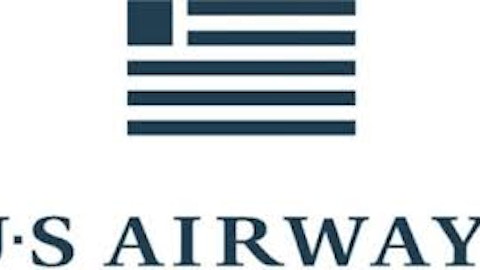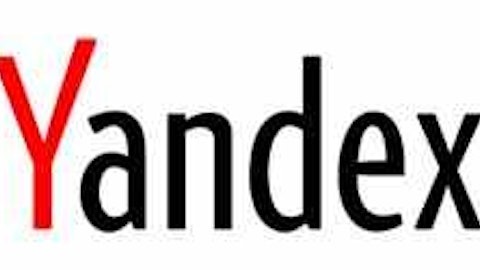Airline shares have been rallying for over a year, but the latest trouble surrounding the US Airways /AMR merger, and a rise in oil prices, have caused shares of major airlines to pull back. But shares of Air Canada (TSE:AC.B) are continuing to fly, breaking through $3 per share in trading on Sept. 6. Will Air Canada (TSE:AC.B) continue to gain altitude, or is the airline flying too high too fast?
Big rally
Last summer, the market hated shares of Air Canada (TSE:AC.B), causing shares to fall below the $1 mark. Major airline stocks were trading at around half of their levels today and making Air Canada’s situation worse was a fear the airline would file for bankruptcy again (the last filing was in 2003).

Air Canada (TSE:AC.B) followed the flight upward, and was further helped by the Canadian government’s decision to extend the date by which the airline would need to make up its multi-billion dollar pension deficit. Had the government not extended the deadline, Air Canada would almost certainly have become insolvent.
Then the rally hit a rough patch, as a double punch of capacity concerns and disappointing earnings overshadowed previous progress. But the airline made up for its earlier earnings shortfall with its most recent earnings, which handily beat expectations. This set off the most recent rally in shares, which now seem set to challenge the high reached earlier this year.
What’s left?
Despite rallying strongly over the past month, Air Canada (TSE:AC.B) shares are still well below their 52-week high of $3.40. The current momentum behind the shares could propel them to this level if the market acts in a similar way to the first part of the Air Canada rally.
But earnings for the airline could also provide a boost to the stock. Businessweek has 2013 consensus EPS of $0.73 per share and 2014 consensus EPS of $0.96 giving the airline a 2013 P/E ratio of 4.5 for FY2013, and 3.4 for FY2014, based on the $3.25 close on Sept. 12.
Investor image issues
One of the drags on Air Canada (TSE:AC.B)’s share price, and part of the reason it went sub-dollar last summer, is a negative perception of the airline in the financial markets. While Air Canada did declare bankruptcy in 2003, all major U.S.-based carriers also have sought protection since the beginning of the millenium.
Air Canada’s also been plagued by the success of rival carrier WestJet Airlines Ltd. (TSE:WJA). Unlike Air Canada, which has tense relations with its often defiant union, WestJet employees participate in a profit-sharing deal that rewards the airline’s success. WestJet is also one of the few non-union airlines, and employees have shown support for the current setup of an association, instead of a union. Without Air Canada’s legacy issues, WestJet Airlines Ltd. (TSE:WJA) enjoys a lower cost structure, and has become the upstart contender in Canadian aviation.
However, Air Canada is demonstrating profitability again, and its EPS is expected to grow significantly over the next couple years. Furthermore, while WestJet Airlines Ltd. (TSE:WJA) is taking a major role in domestic travel, some flights to the U.S., and certain sun destinations, Air Canada still remains Canada’s dominant player in overseas travel. This position gives Air Canada time to work on its cost structure and profitability before WestJet enters this market in full force.
Since much of the negative investor image of Air Canada is related to its profitability and previous bankruptcy, that bad reputation could fade if the airline can demonstrate the more consistent profits that analysts now expect.
Worldwide codeshares
Despite having a name that defines it as a Canadian airline, Air Canada operates beyond Canada’s borders as well. Part of this is done through flying actual flights but the airline’s inclusion in the Star Alliance helps to expand the airline’s total network. United Continental Holdings Inc (NYSE:UAL) is also part of this alliance and, being the world’s largest airline, brings a massive route network both in the U.S. and abroad.
In the airline industry, network size matters — it’s a critical factor in moving passengers toward major flights and making service available to as many passengers as possible. Air Canada’s inclusion in this alliance allows it to have access to not only United Continental Holdings Inc (NYSE:UAL)’s network, but also those of the other airlines in the Star Alliance.
Ironically, the merger that created United Continental Holdings Inc (NYSE:UAL)’s giant network is still giving the airline heartburn today. United pilots are still the only ones able to fly United aircraft, and vice versa for Continental pilots. On top of that, reservation system integration has caused customer service issues leading to poor reputations and even government fines. The issues will take time to resolve at United Continental Holdings Inc (NYSE:UAL); after all, building the world’s largest airline isn’t easy. But Air Canada shareholders can benefit from Air Canada’s use of the Star Alliance network while the largest airline in the network still seeks to integrate itself.
The fasten seatbelt light is still on
With a combination of momentum, strong earnings, and image improvement, Air Canada (TSE:AC.B) still could climb further from here. The ride may not be smooth all along the way, but Air Canada looks poised to move higher after having broken through the $3 per share level. The last time this happened, shares quickly rose to $3.40 before capacity increases and disappointing earnings halted the rally.
With capacity concerns now fully digested by the market and earnings back on track after a major beat last quarter, a rally to $3.40 and possibly even beyond would not be too surprising. I plan to hold by Air Canada shares and run a new analysis on the airline’s prospects if it hits $3.40 per share.
The article How Much Fuel Is Left In Air Canada’s Rally? originally appeared on Fool.com and is written by Alexander MacLennan.
Alexander MacLennan owns shares of Air Canada, AMR, Delta Air Lines, and Gol Linhas. He is also long the following options: $22 January 2015 Delta calls, $25 January 2015 Delta calls, $30 January 2015 Delta calls, $17 January 2015 US Airways calls.The Motley Fool has no position in any of the stocks mentioned.
Copyright © 1995 – 2013 The Motley Fool, LLC. All rights reserved. The Motley Fool has a disclosure policy.



